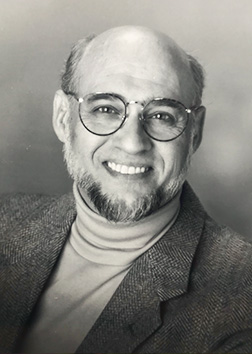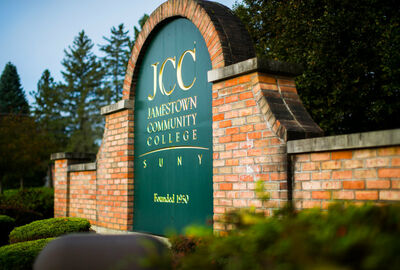Jeffrey Victor, retired SUNY Jamestown Community College professor of Sociology, has gained international attention for his book “Satanic Panic,” which was published thirty years ago.

“I was kind of surprised, very surprised,” Victor exclaimed. “ I thought my book was long forgotten. I was approached by a film company who wanted to interview me for their documentary.”
Filmmakers from Vancouver Island, Victoria, called upon the “Satanic Panic” hysteria from the 1980’s in their documentary titled “Satan Wants You,” to illustrate how a rumor can cause a widespread panic. Victor makes an appearance in the film, which premiered in March at the South by Southwest Art Festival 2023 in Austin, Texas and is receiving largely favorable reviews.
“That city is famous in this story of satanic panics,” Victor shared. “One of the first books that came out about supposed recovered memories of satanic cult-ritual abuse of children was called ‘Michelle Remembers,’ and that supposedly took place in Victoria.”
Victor explained that the story was proved fictitious, but that its publication led to other people reporting similar stories to psychotherapists. The beginning chapter of his book outlines the elements needed to turn falsehoods like this into a rumor panic.
First, isolated local rumor stories need to find a channel to reach a broad, mass audience. These stories need to become "marketable" for the mass media. Second, it is necessary for some kind of "carrier" groups to take up the rumor stories as a cause and disseminate them over many years, even persisting in the face of strong skepticism. In order to disseminate the rumors widely, these carrier groups need to employ pre-existing grass-roots communication networks. Finally, it is necessary for some kinds of authority figures to legitimize the rumor stories, by publicly endorsing them as being true, or at least plausible.
Victor’s research for “Satanic Panic” was a result of his teenage son being the subject of death threats from strangers who accused him of being a Satanist. Later chapters deal with the protection of individual rights against abuses of power. Having a child targeted because of his counter-culture, punk-fashion sense, and participation in a rock band fueled Victor’s need to understand what was happening in his community.
“Conspiracy rumors and panics were in my area of professional training,” Victor shares now. “It was like being a weather scientist in the middle of a tornado. It was a rare opportunity to be in the wrong place at the right time.”
Victor’s goal was to explain how these social phenomena work. The book received the H.L. Mencken Award from the Free Press Association for the best book of 1993, and was used in many criminal cases to defend people accused of satanic cult crimes.
In a more recent article titled “How Conspiracy Rumors Work,” Victor theorizes that social networks carry rumors that fit the preconceived beliefs of the people within them. While we once commonly thought the internet would bring us closer together, Victor points out that it has only served to create a greater divide in our ideologies. He refers back to a social-psychological principle: if people believe that something is real, it is real in its consequences.
“My actual major concern, was then (at the time of writing Satanic Panic) and is now, is how people can avoid being hurt by lies and false stories,” Victor shares. “They say words can’t hurt — yes they can.”
Often, there is a financial motivator involved in these rumor panics.
“In the early 1970’s there were dead cattle out west, and the ranchers couldn’t explain it,” Victor recalls. “If the cattle had eaten some poisonous weeds, the insurance wouldn’t pay for it — BUT — if someone had murdered the cattle, then the insurance would pay for it!”
Economic conditions, poverty, degradation of traditional family structures, and education also play a role in waves of "widespread, free-flowing anxiety" in a region.
Threat rumors, such as the Satanic cult rumors, can be interpreted as being a collaborative symbolic expression of people's shared anxieties about some threat to their well-being and their attempt to seek a solution to the problems causing those anxieties.
Though it became a source of notoriety, Victor’s specialty wasn’t satanic cult culture.
“I specialized in marriage and family,” Victor shares. “I taught psychology of intimate relationships and marital relations. I even had workshops on marital communication.”
Victor was a professor of Sociology for 54 years at JCC. He holds a Ph.D. in Sociology from SUNY Buffalo. Since writing Satanic Panic, he's published two books, eleven chapters in books, more than 14 articles in popular magazines and 21 articles in scholarly journals. He also appeared on television shows such as Larry King Live, the Maury Povich Show and The View. Victor’s article “The Social Dynamics of Conspiracy Rumors: From Satanic Panic to QAnon'' was published in the July 2022 edition of Skeptical Inquirer. The June-July edition of Free Inquiry magazine will include Victor’s latest article, “The Rise of White Christian Nationalism, Why Now? A Sociological Analysis.” For more information about the documentary influenced by Victor’s work and to watch a trailer, visit satanwantsyoufilm.com.

